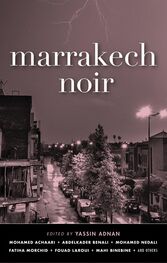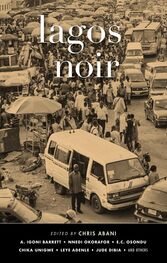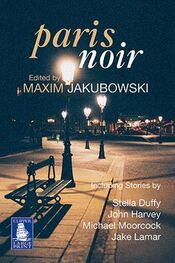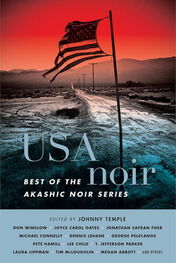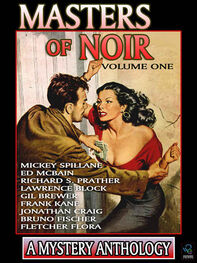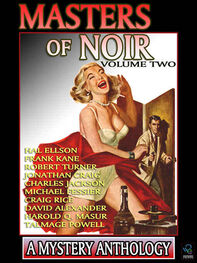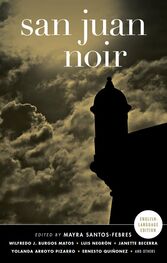
Introduction
City of Joy and Grit
When I agreed to edit Marrakech Noir , I didn’t realize that I had just stepped into a well-laid trap. Marrakech — al-Hamra, the Red City, as Moroccans call it — has been linked to the color red since the Almoravid ruler Yusuf Ibn Tashfin founded the city in 1062. How could I change its color today? And to black, of all colors! For the city is red, and the people of Marrakech pray night and day to protect it from darkness, despair, and moodiness.
No one but palm trees remember that remote past, when bandits hid behind their slender trunks, waiting to ambush passing caravans. Whenever the convoys of al-Massamida tribes reached the place now known as Marrakech, they would whisper morkosh to each other in muffled fear, which meant walk fast in their language. According to some stories, this is where the city’s name came from. But over the centuries the name has lost much of these dark connotations.
Moroccans today also call Marrakech “The Joyful City.” The city is pledged to joy in all its forms, and the inhabitants actively seek it out. The city’s days are bright and its nights are well-lit. Marrakechis are willing to read every type of story about the city — except those that are garbed in black. Even the storytellers of Jemaa el-Fnaa, the city’s leading narrators, have always avoided dark tales in their enchanting halqas .
I used to frequent Jemaa el-Fnaa as a child, and I enjoyed listening to Gnaoua music as I rushed past snake charmers. Monkeys never appealed to me, and neither did the dancers and singers, but I would sometimes linger to watch an uneven boxing match, like a flyweight pitted against a cruiserweight. Sometimes girls faced off against boys, and many times the boys suffered a resounding defeat. But only the storytellers truly captivated me — stories such as The Thousand and One Nights, al-Azaliya, al-Antariyah, and Hilaliya. As soon as I spotted the so-called Doctor of Pests, one of my favorite storytellers, staggering toward one of the square’s corners, I would drop everything and run to him. For me, he was the biggest star of the square. When he would disappear, I missed him. I knew that because of his addiction and his penchant for drinking in public he could be arrested at any time. When he would return, I would always ask him: “Where have you been, Doc?”
“I was in Hollanda,” the doctor would reply quietly, using the Arabic name for the Netherlands. Thanks to the doctor, Hollanda became a euphemism for prison . The doctor once vanished from his halqa for many months — and when he reappeared again, I welcomed him with the same eagerness. That time, he claimed he had been in America. “I was working for the American army,” he said.
No way , I thought. “That’s too much, Doc,” I said in disbelief.
“Don’t get me wrong. I don’t mean I was fighting beside them. God forbid! I was working with a special Moroccan delegation to prepare a salad for the American army,” he explained.
The doctor’s tall tale had attracted a great audience, all of whom hung onto his every word. The doctor told us that the American army was so big that they couldn’t find a bowl large enough to prepare the salad. So they drained a huge lake and dumped in truckloads of tomatoes, onions, and green peppers à la marocaine while fire trucks pumped gallons of olive oil into the mix. As for the salt, pepper, and cumin, helicopters sprinkled them onto the vegetables from above.
“And you, Doc? What was your part in this fantasy?” I asked.
The doctor rebuked me with a look before he continued: “I had an essential role. They gave me an inflatable boat. I rowed across the lake and radioed the helicopters. This area needs more salt , I’d say, and the helicopter would respond to my order and add salt. This area needs pepper, I’d say, and so on.”
The Doctor of Pests, the most famous entertainer in Jemaa el-Fnaa, told this outlandish story so he wouldn’t have to confess that he had been behind bars. His storytelling helped him block out the dark memories of the prison and its guards.
Marrakechis can invent colorful stories to avoid the darkness of reality. The doctor thought it was important to protect his tale, and to preserve the joyfulness of the Marrakechi soul. My task with assembling this book, however, was to search for adventurers who could dive into the grit without any qualms.
One prominent Marrakech author refused, saying, “When you need a story about Marrakech, you’ll find me at your service. I can write about the secrets of the city, its dreams, and its scandals — but not about its crimes.”
Maybe he’s right , I thought to myself. This city is prone to scandals, not crimes. The Marrakechis never tire of recounting scandals. They tell these stories with enthusiasm. They add a lot of spice to past events. But they quickly forget the dark stories, for the Marrakechi impulse is to always remain joyful.
Most of the writers I approached were eager to participate in principle, but they all asked: “Why darkness? Why crimes?” The questions are legitimate. Morocco has no tradition of noir literature. Under King Hassan II, defamation took the place of investigation, and fabrication took the place of interrogation. Moroccans had to wait for the death of the king, who ruled the country with an iron fist, to read the first detective story, “The Blind Whale” by Abdelilah Hamdouchi, one year after he passed. In this way, we are similar to our neighbors in Spain, where crime fiction didn’t proliferate in earnest until after the death of Spain’s dictator Francisco Franco in 1975.
In the last two decades, Moroccans have written no more than thirty detective stories. They are all novels — not one single collection of short stories among them. For that reason, I seemed to be seducing Marrakechi authors into some kind of virgin land, an untouched wilderness, which would be the ultimate challenge to tame. Some authors refused to participate because they didn’t want to intrude upon a literary genre that they didn’t know. Others tried but failed, while a third group succeeded.
The contributing authors took inspiration from old crimes that the city had kept hidden behind its ancient gates, as well as crimes that have happened more recently due to the changes Marrakech has experienced as it becomes a global tourist destination. Prostitution appears alongside arbitrary detention, violence, and terrorism. Poverty, corruption, and betrayal factor in too, as well as tales drawn from the dark reality of psychiatric hospitals.
Despite their variety, these stories remain rooted on Moroccan soil — allowing the contributing authors, writing in Arabic, French, and Dutch, to bring readers closer to the linguistic, cultural, religious, and ethnic reality of Marrakech, whether Arab, Amazigh, African, or Muslim, as well as its historic Mellah — the Jewish Quarter. Here is the capital of tourism, the city of joy and sadness, the city of simple living, the city linked to international capitals through daily flights, the city of the new European community, a winter resort for French retirees, and a refuge for immigrants from sub-Saharan Africa. Marrakech is also known for its sex tourism and a new generation of crimes. All of these aspects of the city are reflected in these stories, no matter how sordid. The authors haven’t written only stories, they have tried to write Marrakech as well. Together their stories present a comprehensive portrait of the city, its sadness, violence, tension, and darkness, without neglecting its joyful spirit.
Читать дальше
